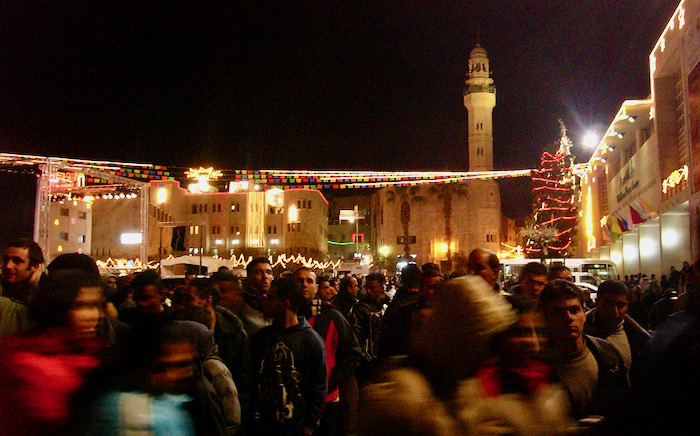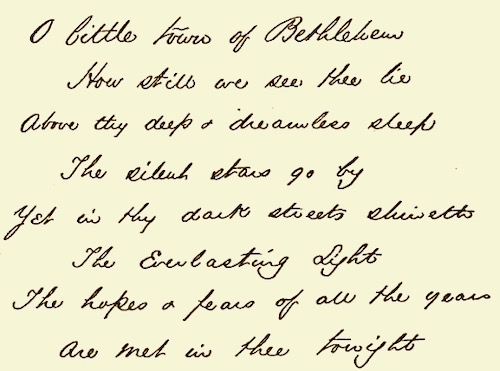Benjamin Pratt: Love Is a Verb

‘O Little Town of Bethlehem’
By BENJAMIN PRATT
Author and Contributing Columnist
When I began my work as a pastoral counselor one of the persons who came to me was a woman in her fifties dying of cancer. I can still remember her saying, “It’s not dying that scares me, it’s my fear of dying alone that haunts me.” As her condition worsened she was moved to Baltimore where she had daily treatments at Johns Hopkins Hospital but spent her nights in a motel room. One of her neighbors who loved her dearly moved to be with her so she would never be alone at night.
That memory captures for me the essence of our deepest fear and deepest hope—the fear of isolation, the hope of a ‘home’ that holds us with love, presence and compassion.
Love is a verb—an action of compassion!
Whenever I sing Phillips Brooks’ hymn, O little town of Bethlehem, I remember the woman dying of cancer when I sing the line, “The hopes and fears of all the years are met in thee tonight.” Each of us lives with some very deep fears and also very deep hopes. Some of us have identified our fear of isolation and aloneness. As Christians, we also feel the hope and comfort of knowing that in the child born in Bethlehem we are given a home with God, who is with us, cradling us with presence, compassion and eternal love. When our faith is strongest, we’re likely to hold more hope. When our faith is weakened, fear can take over.
Christmas comes at the darkest time of the year.
Few people would deny that we live in a dark and dangerous time—so pressing in upon our lives we don’t even need to name the darkness. The early church chose this time of year, not because they had the slightest idea when Jesus was born, but because they wanted to say that the birth of Jesus brought light to the darkest times of life. Therefore, the “Light of the World” was born into the darkest time of the year.
Phillip Brooks wrote that these two great emotions, fear and hope, meet in the birth of Jesus. “The hopes and fears of all the years are met in thee tonight.” They converge, and lying between them is a little baby in a manger. How could such a child gather in all the hopes and fears of all the years?
At this time of year, Christians put themselves in the picture: God has invited us to bring our hopes and fears into the birthing room of the child named Jesus, a child whom the angels will call Emmanuel, which means “God Is With Us.” God is the stranger in the manger who has come to give us a home in which we will not be alone, but welcomed with love. It’s a picture both of vulnerability and an opportunity to love.
The title of that picture we have entered is, of course, “Christmas.”
But it’s also like the picture of that woman fearing she would die of cancer all alone, who was met by the love of her neighbor who stayed with her. For wherever human love meets human vulnerability, there is the incarnation, there is the birth of God.
And therein we draw close to the realm that spans most of the world’s greatest religious traditions. God wants to connect with us. We are not alone. That Divine link is waiting, if we recognize it.
Love is a verb and Christians proclaim: God acted on Christmas Eve through Mary in the birthing of a child named Jesus, who later welcomed, loved and adopted us as brothers and sisters into the home of our loving, compassionate, ever-present, living God.
Love is a verb!
Our call in this season—as Christians awaken to the hope found in the Christ child—is to live that hope, and to tell that marvelous story over and over again until the hope within the story becomes part of who we are and what we do.

Those are Phillips Brooks words.
And to those, I add this prayer, which you may want to share with others this holiday season:
Whisper into our hearts, O Lord,
Fill us with hope and quiet our fears.
Love is a verb—
So, challenge us to live the life
Of your love,
Compassion
And, presence.
Amen
......
Originally posted on ReadtheSpirit.com. Reposted with permission.
